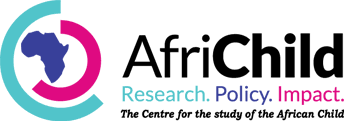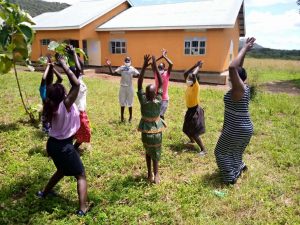In the first study of its kind, researchers explored both positive (attitudes and behaviors that support children and promote their well-being) and negative (attitudes and behaviors that place children at risk and undermine their developmental well-being) parenting practices. Key variables used to measure whether
The researchers, including Prof. Neil Boothby of Columbia University and Dr. Firminus Mugumya of Makerere University, interviewed participants to determine priorities and practices considered important to providing care and protection to children. The most important aspect of positive parenting was identified as a parent investing in a child’s future, mostly through education.
“When a child is educated and has the knowledge, the parent would have provided everything for that child, their future will be bright.”
A respondent from Lira.
Furthermore, respondents acknowledged income levels as a determining factor in what parents could afford to provide their children. Expectations were higher in Kampala compared to the other two districts. Conversely, failure to invest in a child’s education through the provision of school fees and scholastic materials was the most cited attribute of negative parenting. Inadequate support for education was often linked to parental indifference or neglect.
“I know of a father who does not help his children with their homework or help them revise their work. If they can’t go to their parent for help, where can they go?” one child respondent questioned. According to researchers, this study is particularly exciting because it capitalizes on the indigenous strengths to establish positive parenting models suitable for Ugandans rather than having to import them from other countries.
MORE FINDINGS
The research also reveals that household violence and abuse was cited most often as indicative of an unprotected child.
Extreme forms of violence were identified as beating, punching, kicking, or striking a child with large objects. Such violence and abuse
Parents engaged in income-generating projects such as livestock rearing and selling goods directly impact the welfare of their children as they are able to provide for their basic needs and invest in their future. Saving is also critical in achieving financial stability.
Furthermore, 30 respondents attributed good intimate partner relationships to positive parenting compared to 204 respondents who attributed bad intimate relationships to negative parenting. Good relationships are characterized by mutual decision making, equitable division of responsibilities and sexual fidelity whereas troubled ones are associated with wife beating, verbal abuse and having multiple sexual partners.
EXPERTS VIEWS
Joyce
“In order to seriously put children at the heart of the national development agenda, the critical role parents and households play in promoting children’s health, development, education, and protection must be recognized and supported.”
JoyceWanican
Wanican urges






